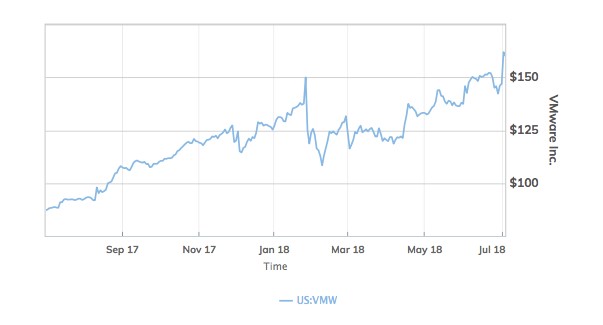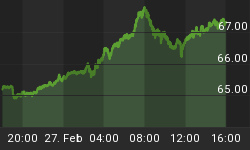Five years ago, computer giant Dell went private to undergo a major metamorphosis. Now, in a nearly $22-billion deal, it’s ready to go public again and investors are wondering if the transformation is all it’s cracked up to be.
On Monday, Dell announced a $21.7-billiion deal that would see it exchange shares of a tracking stock (Dell Technologies Class V) with a new class of listed Dell stock that clears the way for going public.
Dell is offering $109 in cash for each share of class V stock. That’s 29 percent higher than the Friday closing price, when they gained 7.5 percent after the announcement, hitting $91.
Since 2016, investors have been able to gain some exposure to Dell through stock in virtualization software maker VMWare, with the Class V shares tracing the performances of Dell’s stake in the software company. But the new deal will allow investors to trade stock reflecting the full value of the Dell businesses.
The decision to go private five years ago was a painful one for the iconic company. Computer sales were slowing, and competitors like Apple and Samsung were problematic. In 2012, Dell lost some one-third of its entire value.
Then it’s billionaire founder, Michael Dell, make a bold decision to go private, buying back his company for some $25 billion and slipping out from under the prying eyes of Wall Street, where dismal quarterly reports were killing it.
Now, Dell says, they’re ready for Wall Street again, with “several hundred million dollars” in investments over the past year in cloud and analytics “that might not have been feasible in today’s environment for public companies.” Related: Bitcoin Rallies, But Outlook Remains Bearish
Among the biggest investments has been the $67-billion merger in 2016 with corporate software, storage and security giant EMC, which gave it a stake in revolutionary VMware, which gave companies the ability to run multiple virtual machines on a single server (or computer). It was rather a nice feather in Dell’s cap. (Incidentally, VMware’s shares also jumped over 10 percent after the going public announcement).

(Click to enlarge)
Dell’s SEC filings describe the company as “a strategically aligned family of businesses”, with Dell owning a controlling stake.
But not everyone’s convinced the timing is right for Dell.
Speaking to Wired magazine, Gartner research director Craig Lowery, a former Dell exec, questioned whether Dell was strong enough to face the cloud computing behemoths. While clients are spending more money on IT, Lowery says the trend now is leaning toward Amazon Web Services or Salesforce for cloud computing, and that he doesn’t really see big clients moving to build new data centers to host business applications, as Dell foresees. Lowery also doesn’t see much opportunity for Dell to sell servers to cloud computing providers themselves because they’re building their own hardware these days, according to Wired.
Related: Strong U.S. Dollar Attracts Fresh Safe Haven Bids
The software business, and even VMWare’s revolutionary virtual machines aren’t going to be enough. The future is in the cloud, and Dell’s growth is in there, too.
Indeed, Dell has experienced some strong positive momentum, with solid revenue growth and cash flow, as well as faster debt pay-down. But can it compete against Apple, and what kind of market share would we be looking at?
Michael Dell, of course, thinks so, but this wouldn’t be his first big gamble.
By Michael Scott for Safehaven.com
More Top Reads From Safehaven.com:
















